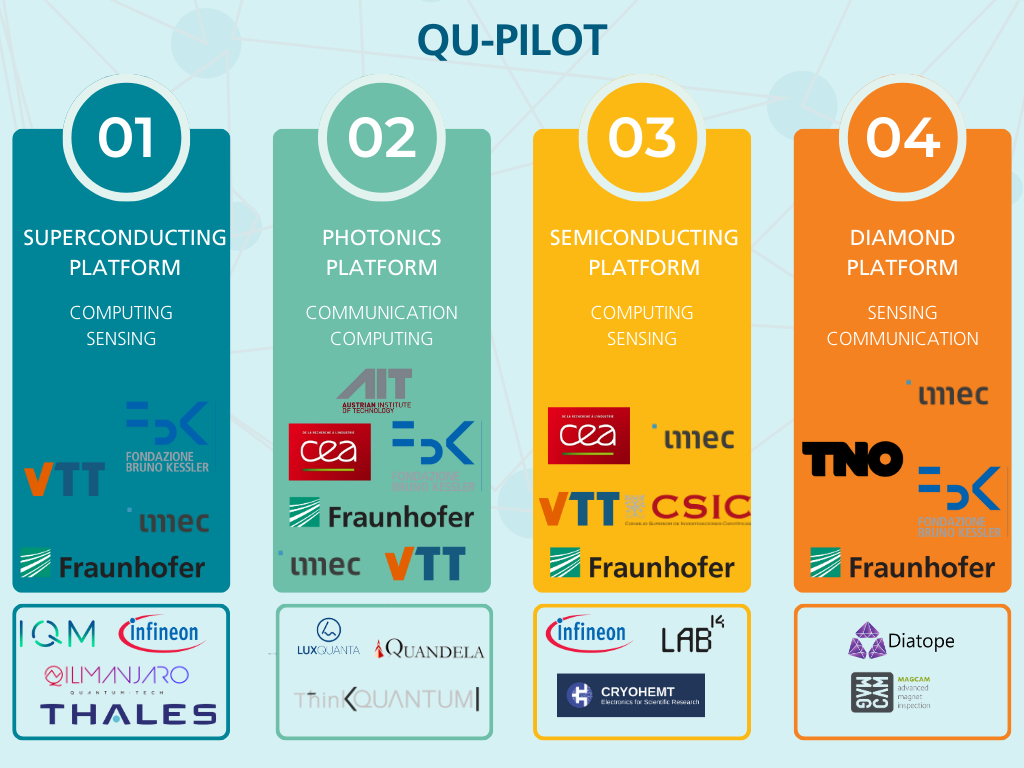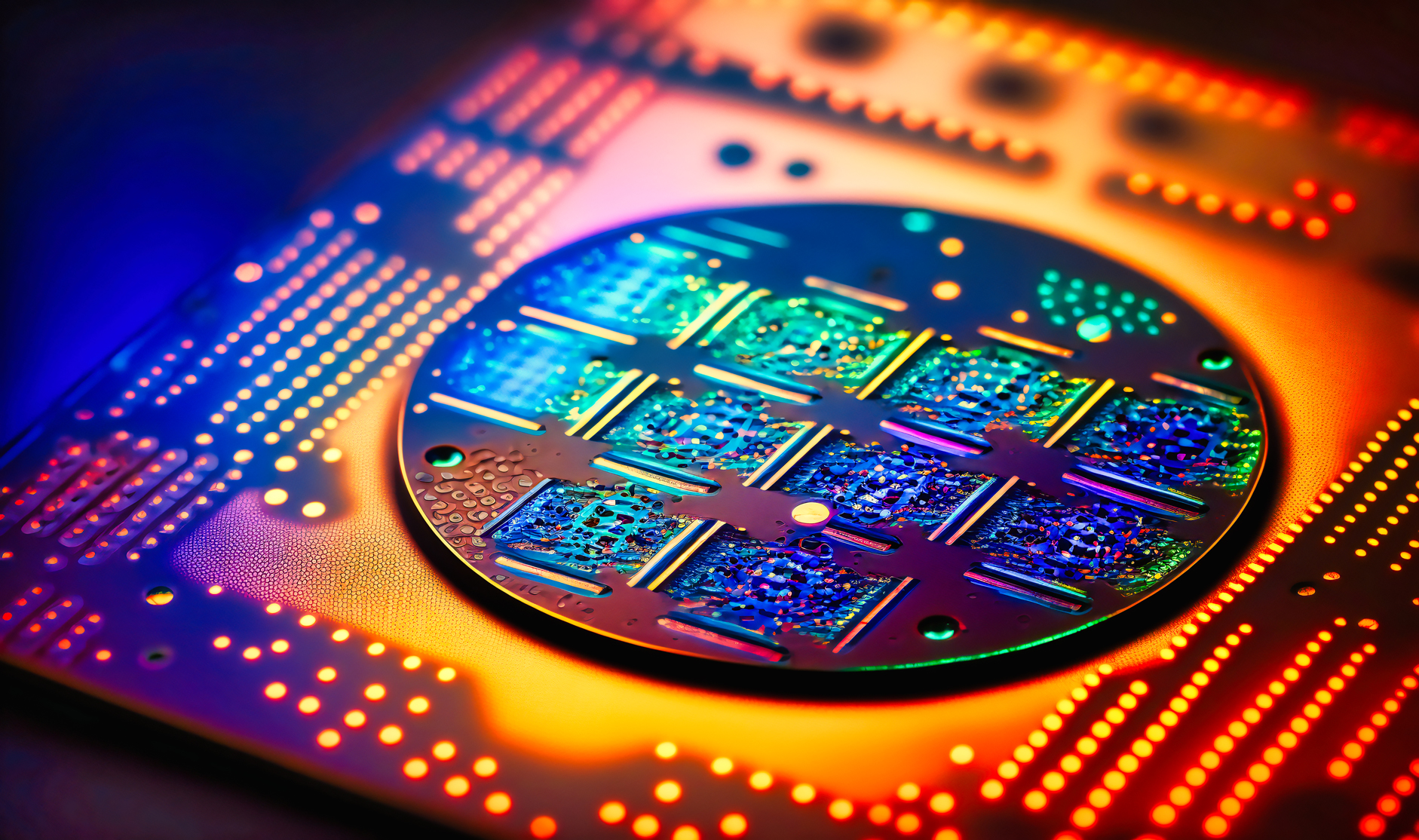Leveraging Europe’s pilot infrastructure federated quantum technology production facilities
Project duration: 2023 - 2026


The Qu-Pilot project consists of 21 partners from 9 different countries, aiming to develop and provide access to the first, federated European fabrication (production) capabilities for quantum technologies, building on and linking together existing infrastructures in Europe. Qu-Pilot will establish a capability innovation roadmap for providing experimental (pilot) production capabilities and a roadmap for transferring such capabilities to an industrial production environment. It will further provide experimental production capabilities for quantum technologies on the superconducting, photonics, semiconducting and diamond platforms, which will find application in computing, communication and sensing. The services will be available to users, including industry, in particular SMEs. Qu-Pilot will work closely with standardization efforts within quantum flagship to ensure development of European standards in the above fields. Qu-Pilot will provide services for the development of a European supply chain of quantum technologies, and give European industry, especially start-ups and SMEs, with the necessary innovation capacity, and make sure that critical IP remains within the EU.
Fraunhofer IPMS contributes its expertise in state-of-the-art, industry-compatible CMOS semiconductor fabrication in 300 mm wafer standard to push the semiconducting and superconducting platforms. This concerns, for example, manufacturing processes such as deposition and nanostructuring or electrical characterization at wafer scale. A special focus is on metallization and BeoL module improvement. Several technological modules for superconducting local and global interconnects will be optimized which are essential for integrated semiconductor qubit initialization, control, and readout for large scale concepts. The end goal is to demonstrate an improved process and materials for low-loss superconducting electrodes as well as the demonstration of superconducting BEOL module comprising at least a via and trench level.
 Fraunhofer Institute for Photonic Microsystems
Fraunhofer Institute for Photonic Microsystems